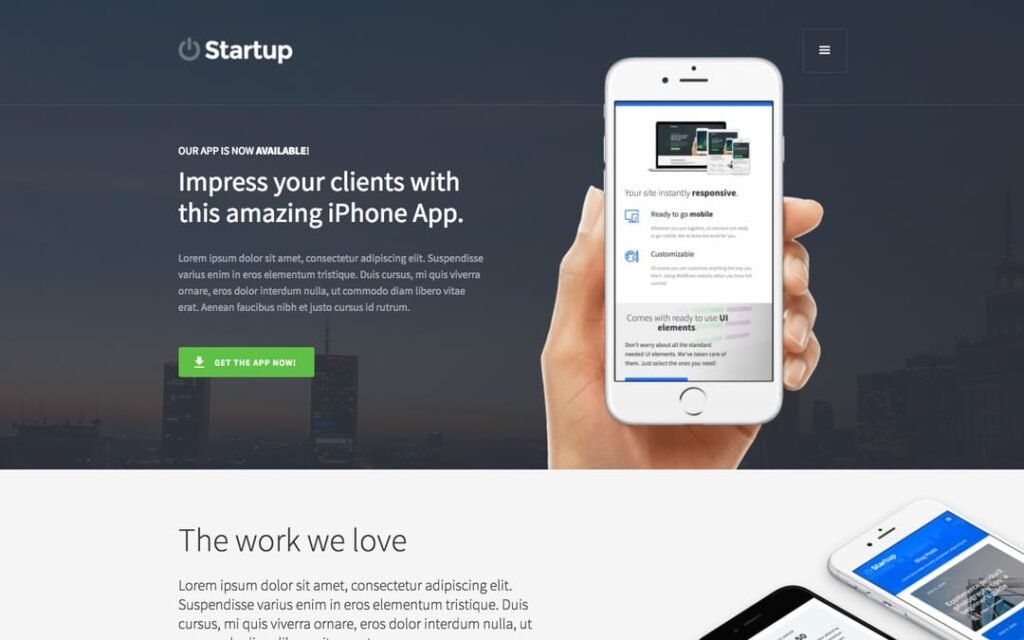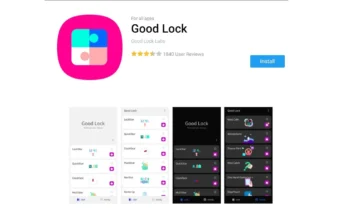
Introduction to AI Website Builders
The growing significance of artificial intelligence (AI) in web design and development is transforming the way websites are created and managed. AI website builders have become invaluable tools, enabling individuals and businesses to quickly and efficiently produce high-quality websites. By automating design processes and offering enhanced customization options, these AI-driven platforms remove many of the traditional barriers associated with website building.
AI website builders leverage advanced algorithms to understand user preferences and predict optimal design choices, thus streamlining the entire creation process. This technology allows both seasoned professionals and novices to craft visually appealing and functional websites with remarkable ease. The speed and efficiency provided by AI website builders reduce the time and effort required, enabling users to launch their online presence promptly.
In this post, we will delve into the top 10 AI website builders of 2024, each playing a pivotal role in revolutionizing the web design landscape. These platforms represent the cutting edge of technology in the field, offering exceptional features that cater to a wide range of user requirements. Whether you are a seasoned developer or embarking on your first web design project, AI website builders are poised to be the cornerstone of your digital endeavors.
The selection of the top AI website builders for 2024 is guided by a blend of critical criteria that impacts both the development and user experience. The foremost criterion is ease of use. A user-friendly interface that simplifies the web design process is vital for both novices and experienced users. An intuitive drag-and-drop functionality and step-by-step tutorials significantly reduce the learning curve, enabling users to create polished websites swiftly.
Another crucial factor is customization options. Flexibility in design allows users to tailor their websites to specific needs and preferences. A robust AI website builder will offer a range of customization features, such as editable templates, customizable font options, and color schemes. This flexibility ensures that users can create unique, visually appealing websites that reflect their brand identity.

Template variety also plays an essential role. Diverse templates cater to different industry needs, from e-commerce to personal blogs, thus broadening the builder’s usability across various domains. AI capabilities in template selection can further ensure that users are presented with the most suitable designs based on their inputs.
The AI capabilities themselves, including content generation, SEO optimization, and personalized design recommendations, are fundamental criteria. Advanced AI algorithms streamline the design process, optimize website performance, and enhance user engagement. These capabilities are what distinguish AI-powered builders from traditional ones.
Customer support is another pillar of evaluation. Reliable and accessible support, whether through live chat, email, or comprehensive knowledge bases, is indispensable. It ensures that users can resolve issues quickly and efficiently, minimizing downtime and operational disruptions.
Pricing is a pragmatic consideration. An AI website builder must offer competitive pricing structures that deliver value. Transparent pricing tiers catering to different budgets and feature requirements allow users to choose plans that align with their financial constraints.
Lastly, integration with other tools enhances the overall functionality of the website. Seamless compatibility with social media platforms, analytics tools, and third-party applications can dramatically boost the effectiveness of the website and provide a holistic digital solution.
By adhering to these criteria, the top 10 AI website builders for 2024 are not only evaluated for their individual components but also for how well they amalgamate to provide a superior user experience. The subsequent sections will delve into detailed reviews of each top contender, illustrating how they meet and exceed these criteria.
Detailed Review of the Top 10 AI Website Builders
AI website builders are revolutionizing web design by providing intuitive, powerful tools that require little to no coding knowledge. Here, we present a detailed review of the top 10 AI website builders for 2024, highlighting their unique features, advantages, and disadvantages to help you decide which one might be the best fit for your web development needs.
Wix ADI
Wix ADI (Artificial Design Intelligence) is renowned for its user-friendly interface and customization capabilities. The platform asks a few questions to determine the type of website you need and then generates a fully functional site. Key features include a vast template library, drag-and-drop editing, and robust SEO tools.
Pros: Easy to use, extensive customization options, and excellent SEO support.Cons: Limited flexibility for advanced users and premium-only features.
Wix ADI uniquely adapts to the user’s preferences, making it suitable for both beginners and experienced web developers.
Bookmark
Bookmark leverages a proprietary AI algorithm named AIDA (Artificial Intelligence Design Assistant) to create websites. The process involves answering a series of questions, after which AIDA designs a customized site in minutes.
Pros: Speedy setup, mobile-friendly designs, and e-commerce capabilities.Cons: Limited design flexibility once the site is generated.
Bookmark stands out with its focus on small businesses and entrepreneurs seeking rapid, efficient website creation.
Zyro
Zyro is known for its affordability and simplicity. Its AI tools include a logo maker, content generator, and heatmap for performance insights. The drag-and-drop editor and pre-designed templates make it accessible for all skill levels.
Pros: Budget-friendly, wide range of AI tools, and helpful customer support.Cons: Limited third-party integrations and fewer templates than competitors.
Zyro excels with its cost-effective solutions, ideal for startups and small businesses with constrained budgets.
Squarespace
Squarespace integrates AI to help with design recommendations and layout placement. It is well-suited for creatives needing visually stunning websites, featuring high-quality templates and robust e-commerce capabilities.
Pros: Elegant design options, strong e-commerce features, and excellent support.Cons: Steeper learning curve and higher pricing tiers.
Squarespace is perfect for those emphasizing aesthetics and design quality, particularly designers and artists.
Weebly
Weebly offers a straightforward website building experience with AI-enhanced tools for site optimization. It provides a mix of templates and customization options, making it suitable for various types of users.
Pros: Intuitive interface, good e-commerce features, and free plan available.Cons: Limited design flexibility and fewer template options.
Weebly is best for users seeking a balance between simplicity and functionality, particularly small business owners.
GoDaddy Website Builder
GoDaddy’s AI-driven website builder is designed for speed and ease. It features guided steps for site creation and robust marketing tools. The platform also includes e-commerce functionalities and a wide selection of templates.
Pros: Quick setup, strong marketing tools, and free trial available.Cons: Limited customization and higher pricing for advanced features.
GoDaddy is an optimal choice for users needing a speedy solution with integrated marketing capabilities.
Duda
Duda offers AI-based personalization and user behavior analytics to maximize engagement. It caters to agencies and large businesses with its advanced design and client management tools.
Pros: Strong personalization features, advanced analytics, and collaborative tools.Cons: Higher price point and steep learning curve for beginners.
Duda is best suited for agencies and businesses requiring sophisticated design and analytics features.
Jimdo
Jimdo’s AI assistant, Dolphin, offers a streamlined website creation process by asking user-specific questions. It includes SEO tools and e-commerce features along with a responsive design library.
Pros: Easy setup, responsive designs, and affordable plans.Cons: Limited customization and fewer advanced options.
Jimdo is suitable for personal websites and small online stores, prioritizing ease of use and affordability.
Site123
Site123 simplifies website creation with AI-driven templates and a focus on quick setup. It provides essential tools for SEO, e-commerce, and blogging, making it versatile for different needs.
Pros: User-friendly, quick setup, and good customer support.Cons: Limited design flexibility and fewer advanced features.
Site123 is ideal for users seeking a straightforward and time-efficient solution for their web presence.
Webflow
Webflow combines visual web design with code-level precision, using AI elements to enhance the design process. It’s aimed at professional designers and developers needing advanced control over their projects.
Pros: Advanced customization, powerful design tools, and strong SEO capabilities.Cons: Steeper learning curve and higher pricing.Webflow stands out with its flexibility and design precision, making it perfect for seasoned web designers and developers requiring detailed control.
Future Trends in AI Website Building
As we advance into the future, the landscape of AI website building is set to undergo significant transformations. Foremost among these emerging trends is the integration of advanced machine learning algorithms. These algorithms will enable website builders to better understand user preferences, adapt to design sensibilities, and provide more accurate customization options. The ongoing refinement of machine learning models will mean that AI website builders can increasingly anticipate the needs of developers and end-users alike, making the design process smoother and more intuitive than ever before.
Another pivotal advancement lies in the realm of natural language processing (NLP). This technology is expected to become a cornerstone of AI-driven website builders, offering more powerful and context-aware interactions. Users will be able to communicate with AI in a more natural and conversational manner, enhancing the ease of use and efficiency in website creation. Tasks that previously required intricate coding could be executed through straightforward commands, significantly lowering the barrier to entry for novice designers while empowering experienced developers to expedite their workflows.
User experience (UX) enhancements are also poised to make a substantial impact. Next-generation AI website builders will harness data-driven insights to deliver highly personalized design experiences. Through predictive analytics, these tools will suggest tailored templates, layouts, and features tailored to the unique preferences and behaviors of individual users. This bespoke approach will not only streamline the design process but also result in websites that offer optimal engagement and retention for their target audiences.
Looking ahead, the convergence of these technologies promises to democratize web design further. As AI website builders become more sophisticated, they will offer a myriad of elegant and functional design options that cater to diverse needs. Users can expect a future where creating a website is as seamless as drafting an email, with AI-driven tools shouldering the complexities of design, functionality, and optimization.




